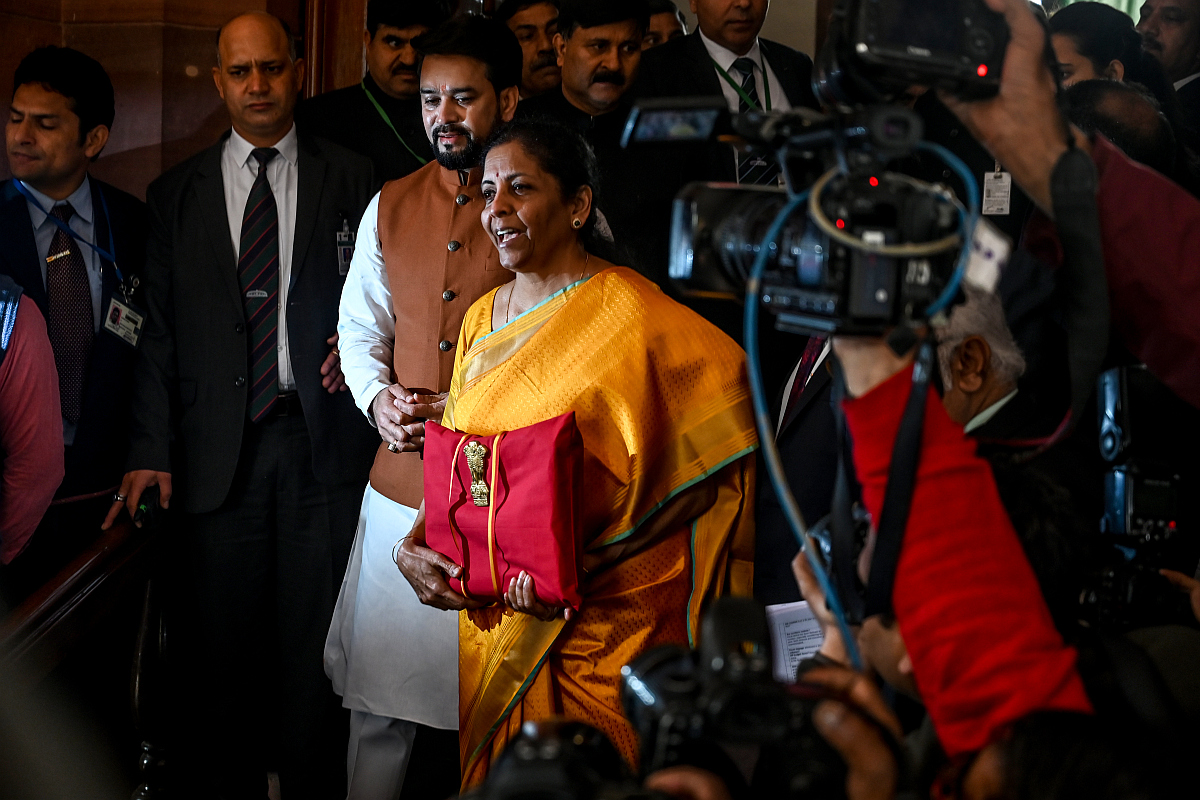Earnings season, global cues to shape market trends
Markets will continue to focus on the earnings season and global cues in the upcoming week.
India’s economic growth slowed to 4.7 per cent in October-December 2019, according to official data released on Friday.

India Finance Minister Nirmala Sitharaman (C) arrives at the Parliament to the 2020-21 union Budget, in New Delhi on February 1, 2020. (Photo by Prakash SINGH / AFP)
Finance Minister Nirmala Sitharaman on Friday said that “steadiness” in the economy is a good sign as she referred to the data released earlier in the day in which December quarter GDP growth stood at 4.7 per cent.
Sitharaman made the statement during a business event organized by a private TV news channel, where she also made it clear that she was not expecting a jump in the number, nor a decline.
India’s economic growth slowed to 4.7 per cent in October-December 2019, according to official data released on Friday.
Advertisement
The GDP growth was at 5.6 per cent in the same period of the last fiscal, as per the data released by the National Statistical Office (NSO).
On the impact of coronavirus on the economy, Sitharaman sought to allay any fears saying there is no need to immediately press the “panic button”, but things could get challenging if the issues prolong for another two or three weeks, citing feedback from the pharmaceutical and electronic industries, which depend heavily on imports of raw material from China.
The minister further said that the industry has suggested airlifting of essential items and the government may consider the same. While the logistics for airlifting like aggregating the goods have to be done by the industry itself, she assured help from the government through the consular staff.
Sitharaman said the government is “pushing the banks like never before” to lend in all categories, including retail, home and agriculture segments.
She also said that the government is working on creating a development finance institution akin to ICICI and IDBI before they turned into full-fledged banks.
(With input from agencies)
Advertisement